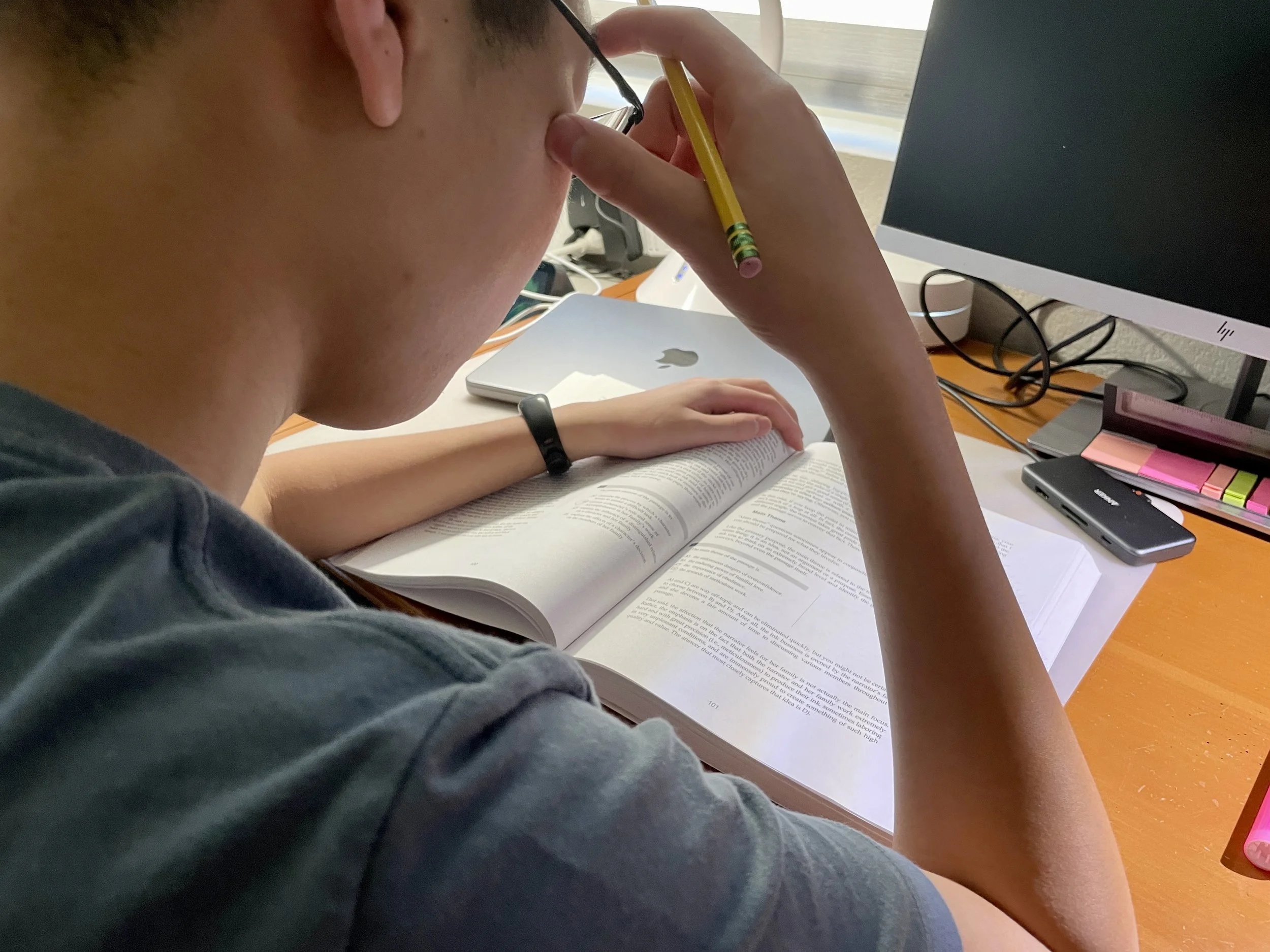The Problem with Toxic Productivity: Students are Suffering
Check. Check. Check. Crossing everything off our to-do list feels good, but what happens when we go too far?
By Mia Jong
Race to school, gulp down lunch to make it to a club meeting, get changed for volleyball practice, rush to a music lesson, volunteer at the library and wade through piles of homework. Repeat. Once the school year begins, many high school students find themselves trapped in the suffocating cycle of all work and no play.
“Students are doing so much more than they did in the past and have their hands in everything. As a result, they aren’t as productive as they could be,” says Jessica Hebl, a counselor for Beacon Park School in Irvine, California.
More than ever, students believe that they should be doing something meaningful every minute of the day to prepare for looming college applications. However, experts say there is a fine line between being productive and falling into the trap of “toxic productivity.”
Toxic productivity is the new buzzword for workaholism, especially among students. The term refers to an obsession with constantly doing as much as possible without rest. Many students replace sleep with coffee, complete assignments early into the morning and cram their schedules with extracurriculars, all in the hope of making themselves the “standout applicant” for colleges that are ever more competitive.
Members of Gen Z — people ages 15 to 21 — reported the worst mental health of any generation, according to a 2018 study published by the American Psychological Association, the largest scientific organization of psychologists in the United States. Photo by Mia Jong
At exclusive schools — those with 10% to 20% admission rates — the number of high school students who applied more than doubled between 2002 and 2017, according to a study published by the Pew Research Center in 2019. Meanwhile, the average admission rate plunged from 18% in 2002 to 7.4% in 2017.
The growing competitiveness of colleges only exacerbates toxic productivity and leads to students pushing themselves beyond healthy limits.
“I feel pressured to have more extracurricular activities just to have a chance of being accepted into a good school. Sometimes, it feels like I just do activities to impress colleges, and most of the time, I get burnt out,” says Maddy Chen, a sophomore student at Portola High School in Irvine, California.
Students with the mindset of toxic productivity often neglect rest, and when they do relax after a busy week, they may feel lazy or worthless. “I feel guilty when I’m not doing activities because I know I should be doing something, but I’m not,” Chen says.
Additionally, being overworked can result in severe physical and mental health repercussions. According to the National Library of Medicine, a federally funded medical library, people can develop insomnia, high blood pressure, anxiety, depression, headaches, stomach problems or suicidal thoughts.
“When people are overworked, they either hit a wall where they’re so depressed that they can’t function, or they’re so exhausted that they’re upset no matter what they do. (Activities) are no longer joyful; they’re no longer even meaningful sometimes. It becomes a routine, robotic,” says Dr. Felicia K. Wong, a psychiatrist at Kaiser Permanente.
Students use sticky notes to keep track of their busy schedules. Photo by Mia Jong
Being always busy doesn’t always mean being productive. When young people are overworked, they become less efficient, and their performance can suffer.
Students are more likely to lose focus in class, leading to a drop in grades and self-worth, Hebl says. “There’s pressure from parents to do well, and there’s pressure from other kids in class. People judge you if they hear you got a 75% on a test. And, all of a sudden, you’re one of ‘those’ kids.”
“Focus on the things you’re good at, things that interest you, that excite you and just do those things,” says counselor Jessica Hebl.
She explains, “It’s hard for students to see past that bad grade because they want to excel in everything they're doing, from swim practice to art class, which is impossible.”
So, how do you escape from this cycle? Begin by slowing down and reevaluating why you do certain activities. Set realistic goals for yourself. Stop comparing yourself with others and aim for at least eight hours of sleep.
“When you think about teenagers, ideally, that is a time when you are challenged. So it’s not to say there aren’t going to be periodic stresses or periodic feelings of being overwhelmed. But, you need to have some breaks so that you can process it, learn from it and cope with it. If someone is constantly just going, going, going, that gets lost,” Wong says.
Normalize taking time for yourself, exercising and eating meals when you’re hungry. Students who struggle with their mental health should know that they’re never alone and that they can always reach out to resources available on campus, from a trusted teacher to a counselor.
Being known as the “perpetually stressed kid” shouldn’t be the defining trait of high school students. Colleges want people on campus. Not robots.
Mental Health Resources
If you or anyone you know is struggling with persistent mental health challenges, reach out to these resources:
U.S. Government Mental Health Information
The Jed Foundation’s Mental Health Resource Center
National Suicide Prevention Lifeline
Call 988




